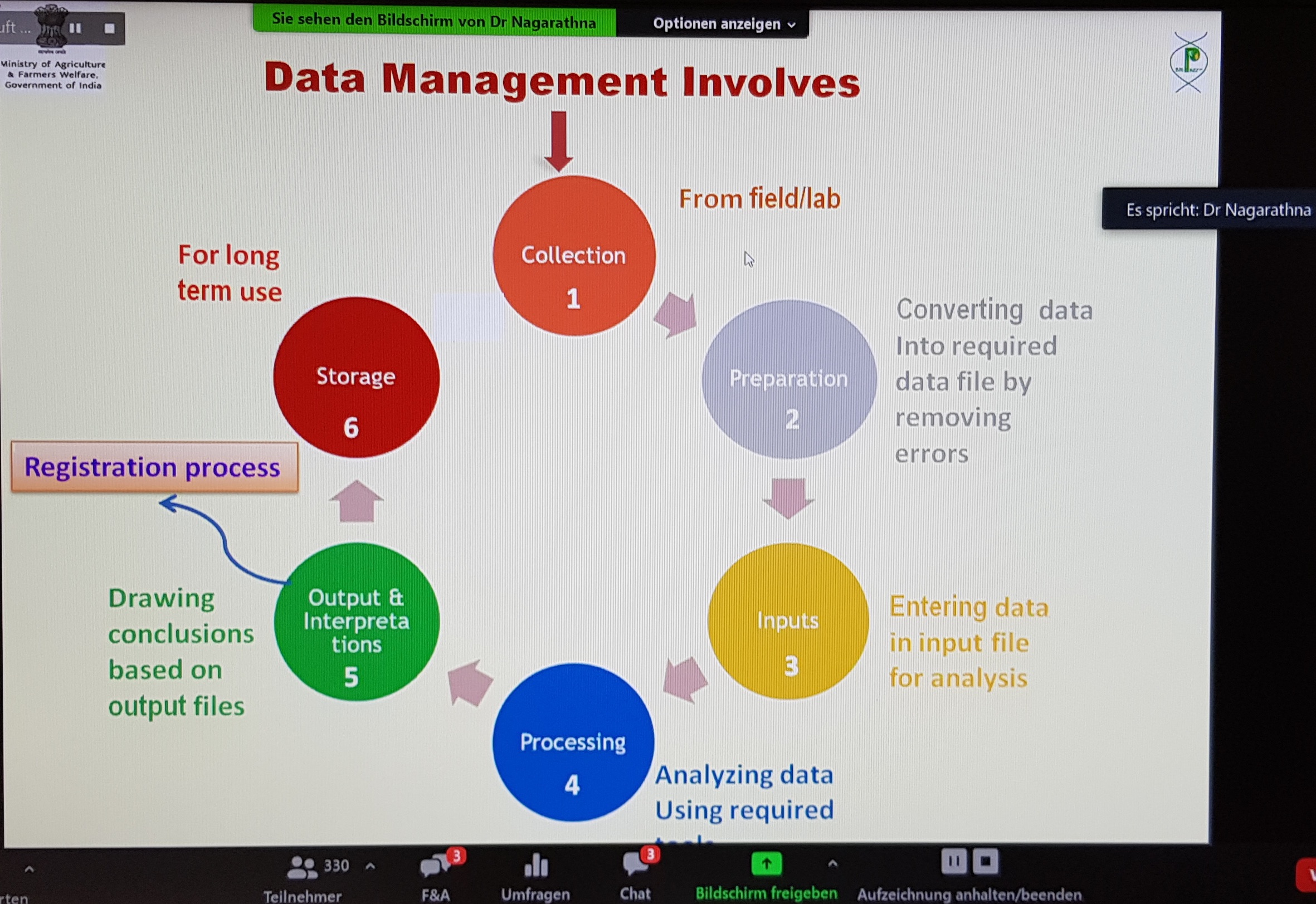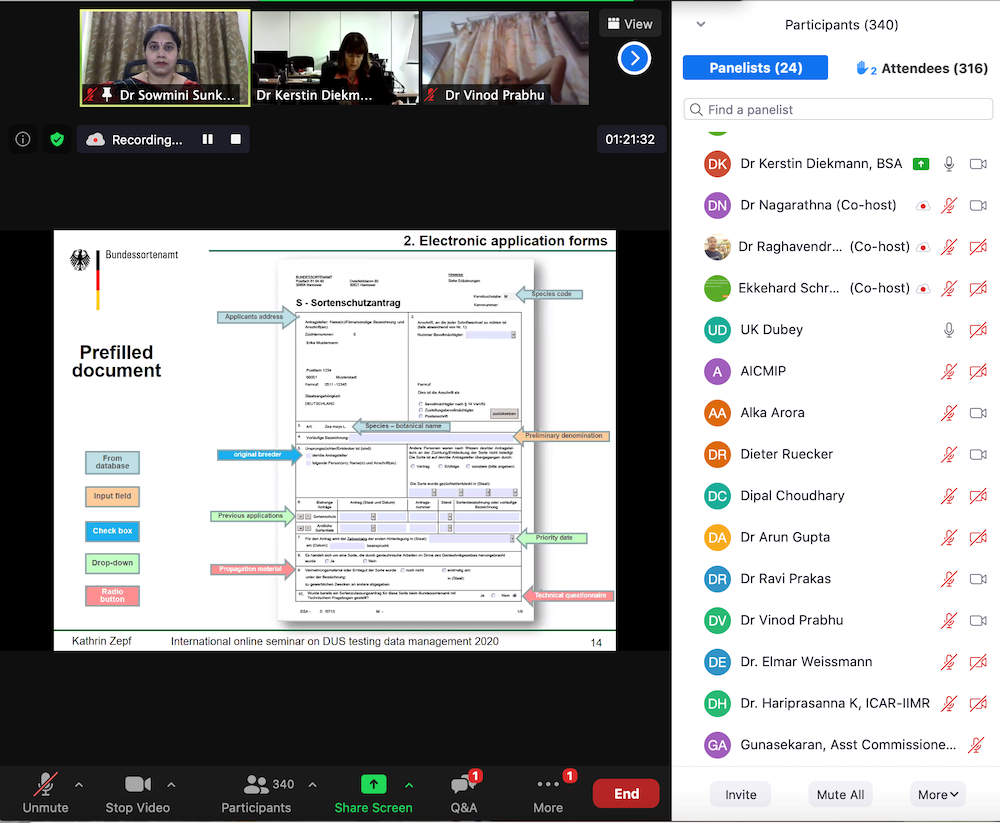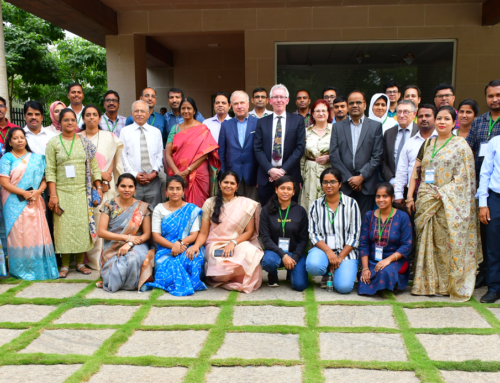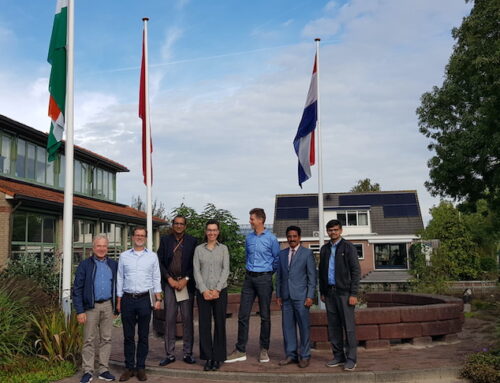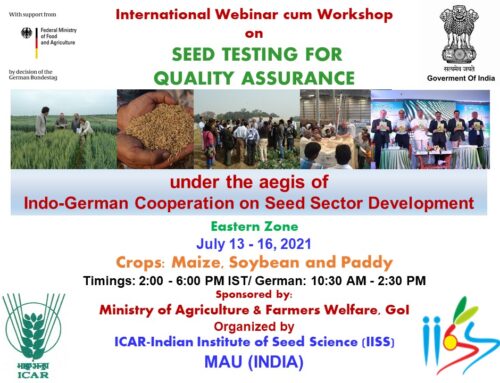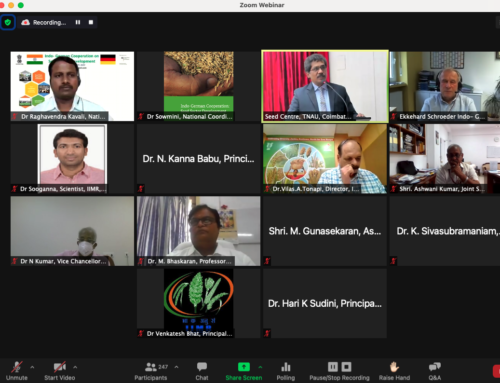International Webinar on “DUS-testing Data Management/ Automation/ Image Analysis” were successfully conducted on two consecutive days i.e., on October 6th and 7th, 2020 in cooperation with DAC&FW, Ministry of Agriculture and Farmers Welfare, Govt. of India and the Protection of Plant Varieties and Farmers’ Rights Authority (PPV&FRA) in Delhi in the frame of the Indo-German Co-operation Project on Seed Sector Development. The project is part of the bilateral cooperation programme of the German Ministry of Food and Agriculture (BMEL) and implemented by the consortium of ADT Project Consulting GmbH (ADT) and German Plant Breeders’ Association (BDP). Technical partner in Germany is also the German Federal Plant Variety Office (Bundessortenamt (BSA)).
The aim of these Webinars was to exchange experience and know-how on administrative, technical and legal aspects of DUS data management between the experts of PPV&FRA, the BSA and further stakeholders involved in plant breeding activities in India and Germany.
More than 280 seed sector experts (i.e. DAC&FW, PPV&FRA, ICAR, BSA, ADT, representatives of DUS-Testing centres in India, representatives of the seed industry such as the National Seed Association of India (NSAI), the Federation of Seed Industry of India (FSII) and the German Plant Breeders’ Association (BDP) attended both Webinars.
DUS-testing is a way of determining whether a newly bred variety differs from existing varieties within the same species (Distinctness), whether the characteristics used to establish Distinctness are expressed uniformly (Uniformity) and that these characteristics do not change over subsequent generations (Stability). DUS testing of varieties is one of the key requirements for granting Plant Breeders’ Rights. The DUS test generates a description of the variety detailing its relevant characteristics (morphological and other features). DUS data management is requiring an extensive databases and software for comparing varieties.
The technical program of the Webinars covered various topics such as:
- Manual DUS data management versus software data management;
- Administrative aspects and external access to the DUS database at BSA in Germany: “From application to registration to deletion of a variety”;
- Internal DUS data management at BSA in Germany;
- Value of using single plant data for decision making on uniformity during DUS data analysis in India;
- Collecting, analysing and managing DUS data on perennial species through onsite evaluation in India;
- Image analysis in selected crops- Experience at BSA in Germany;
- Linking DUS test results in new web portal of PPV&FRA;
- Knowledge Management System for DUS Characterisation, ICAR-IASRI, New Delhi;
- Legal aspects in DUS testing in India;
- Sharing experiences & views of Indian and German private seed Industry (representatives of FSII, NSAI, BDP).
All speakers from public and private seed sector provided excellent presentations and information on the topics above. Many other participants contributes to an fruitful discussion.
